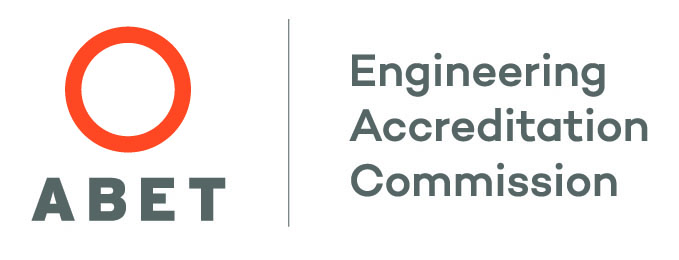Accreditation
The Bachelor’s of Science in Industrial Engineering is accredited by the Engineering Accreditation Commission of ABET, https://www.abet.org, under the commission’s General Criteria and Program Criteria for Industrial Engineering.
Mission
The mission of the Department of Industrial Engineering is to provide students with high quality, accessible undergraduate and graduate industrial engineering education; to engage and empower students with skills and knowledge to thrive in professional careers; and to serve society through economic and technological development of Southeast Texas and beyond.
Program Educational Objectives
The industrial engineering program educational objectives are to produce exceptional graduates who within a few years after graduation:
1. Advance professionally with increasing leadership and responsibility beyond entry level in an industry relevant to industrial engineering.
2. Contribute to organizational objectives with significant societal benefits in an environmentally and ethically responsible manner.
3. Engage in life-long learning through professional activities and training, the pursuit of higher educational degrees, and individual professional development.
Constituents
Current students, alumni, employers, and faculty are our constituents. They are represented by an advisory council that helps the department in many ways including reviewing and evaluating the performance of the department and suggesting strategic directions.
Student Outcomes
The student outcomes used by the industrial engineering program are those published in the ABET “Criteria for Accrediting Engineering Programs” document. Student outcomes define what students must learn by the time they graduate. The department periodically reviews student performance in these areas as part of our continuous improvement process. The outcomes are as follows:
- an ability to identify, formulate, and solve complex engineering problems by applying principles of engineering, science, and mathematics
- an ability to apply engineering design to produce solutions that meet specified needs with consideration of public health, safety, and welfare, as well as global, cultural, social, environmental, and economic factors
- an ability to communicate effectively with a range of audiences
- an ability to recognize ethical and professional responsibilities in engineering situations and make informed judgments, which must consider the impact of engineering solutions in global, economic, environmental, and societal contexts
- an ability to function effectively on a team whose members together provide leadership, create a collaborative and inclusive environment, establish goals, plan tasks, and meet objectives
- an ability to develop and conduct appropriate experimentation, analyze and interpret data, and use engineering judgment to draw conclusions
- an ability to acquire and apply new knowledge as needed, using appropriate learning strategies.
Enrollment Statistics
|
|
Enrollment Year |
Total Full and Part Time |
Degrees Awarded |
||||||||
|
1st |
2nd |
3rd |
4th |
Total |
Technology Bachelors |
Bachelors |
Masters |
Doctorates |
|||
|
2020-2021 |
FT |
5 |
5 |
13 |
34 |
57 |
86 |
50 |
33 |
27 |
3 |
|
PT |
0 |
1 |
3 |
24 |
28 |
||||||
|
2021-2022 |
FT |
11 |
7 |
7 |
39 |
67 |
92 |
41 |
23 |
16 |
1 |
|
PT |
2 |
1 |
6 |
19 |
28 |
||||||
|
2022-2023 |
FT |
15 |
4 |
12 |
32 |
63 |
92 |
46 |
20 |
32 |
2 |
|
PT |
1 |
1 |
6 |
21 |
29 |
||||||
|
2023- 2024 |
FT |
8 |
9 |
9 |
32 |
58 |
87 |
43 |
20 |
75 |
7 |
|
PT |
2 |
1 |
7 |
19 |
29 |
||||||
*Graduates are for reporting year and number of majors and percent part time based on fall semester.
For more information, see Lamar University Dashboard. In the dashboard, Industrial Engineering majors include Provisional Industrial Engineering and Industrial Engineering students.
